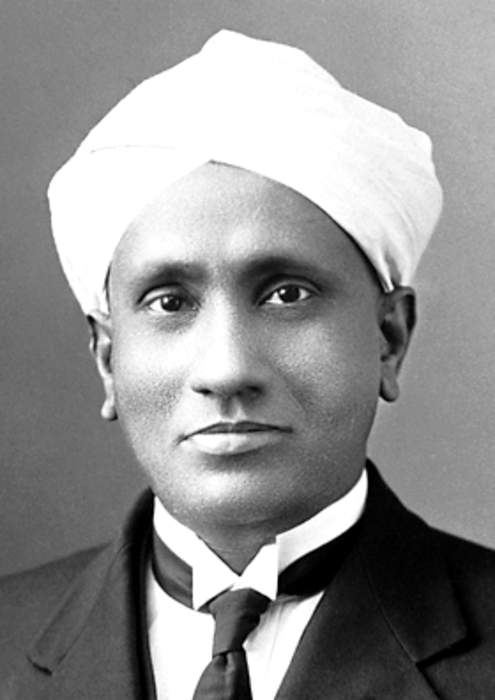C. V. Raman
Indian physicist (1888–1970)
C. V. Raman ▸ Facts ▸ Comments ▸ News ▸ Videos

Sir Chandrasekhara Venkata Raman, known simply as C. V. Raman, was an Indian physicist known for his work in the field of light scattering. Using a spectrograph that he developed, he and his student K. S. Krishnan discovered that when light traverses a transparent material, the deflected light changes its wavelength. This phenomenon, a hitherto unknown type of scattering of light, which they called modified scattering was subsequently termed the Raman effect or Raman scattering. In 1930, Raman received the Nobel Prize in Physics for this discovery and was the first Asian and the first non-White to receive a Nobel Prize in any branch of science.
| 0 shares | ShareTweetSavePostSend |
You Might Like
National Science Day: Celebrating the legacy of Dr CV Raman on February 28India observes National Science Day on February 28 to honour Sir CV Raman's discovery of the Raman Effect in 1928. The 2023 theme emphasiSes youth leadership in science and innovation, aligned with the..IndiaTimes - Published | |
National Science Day 2025: Honoring CV Raman's legacyThe theme for National Science Day 2025 is "Empowering Indian Youth for Global Leadership in Science and Innovation for a Viksit Bharat (Developed India)."DNA - Published | |
Presidency to bring back to life lab equipment CV Raman usedPresidency College's physics department, celebrating its 150th anniversary, is restoring the spectrophotometer used by C.V. Raman for his groundbreaking research. Raman, who later won the Nobel Prize..IndiaTimes - Published | |
National Science Day 2023: History, purpose and role of CV RamanIndiaTimes - Published |
| Search this site and the web: |
